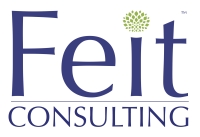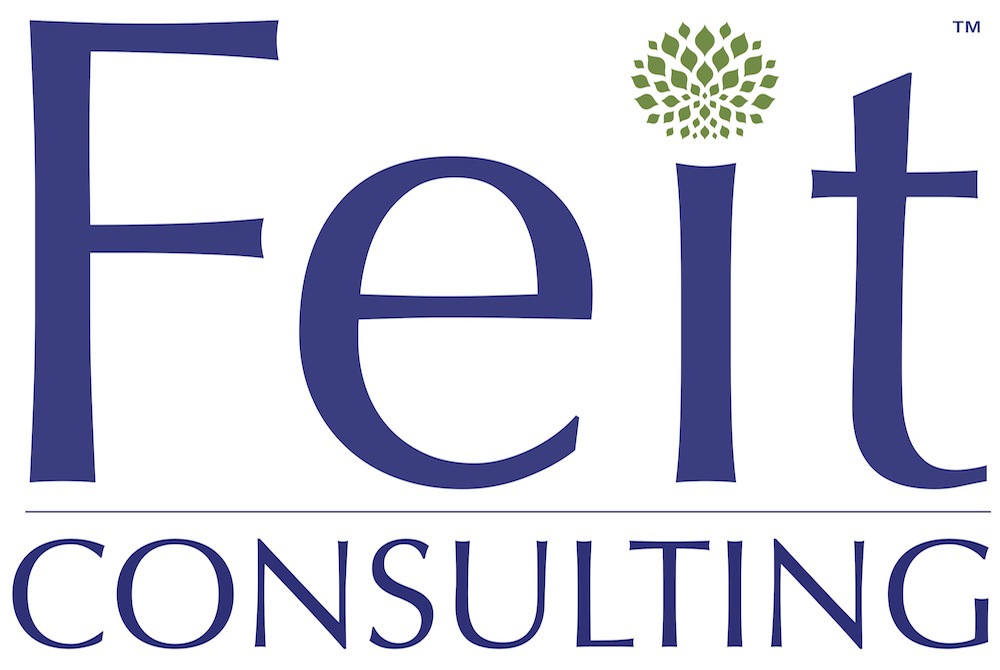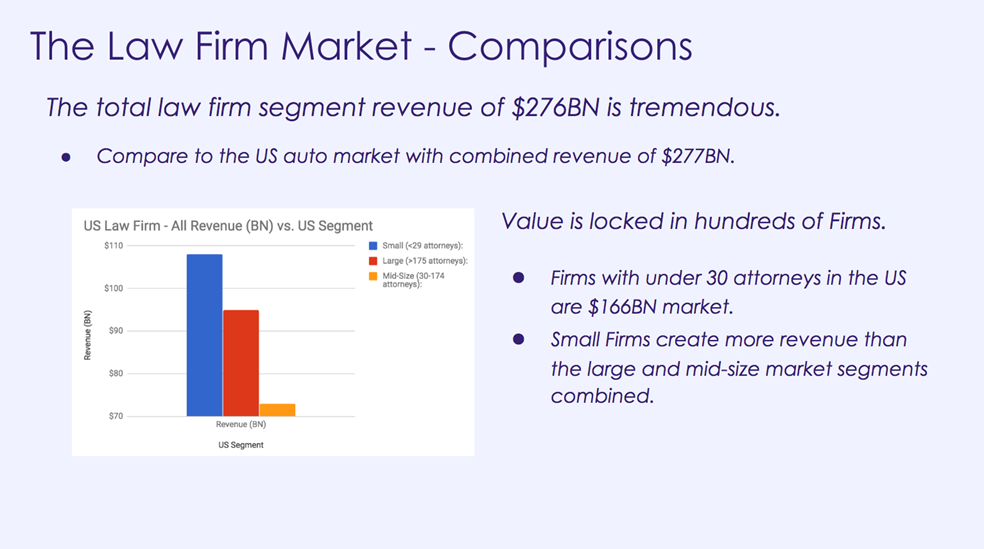
Sole Provider Adoption Trends: Key Data
By Michael Feit | Feit Consulting
Imagine if Lexis and Westlaw were new products today, offering your firm the same subscription price you already have. Would you really purchase both? Most of those informed on the topic would argue that these products are far too close in total content to need both. This duopoly paradigm has been in place since the early 90s and has been the norm since until recently.
Historically, firms could retain both Lexis and Westlaw because the majority of costs would be passed through to clients. The recession forever changed the dynamics of the online legal information market for both vendors and firms. Firms started to see their sophisticated corporate clients closely scrutinizing costs and refusing to pay for online legal research. Now that recovery rates have greatly diminished, firms are being forced to evaluate their need to retain both vendors.
Feit Consulting collected data on 389 law firms with over 100 attorneys in the US within the last year those firms provided relevant, decision-making insight on adoption trends, including this key data point: for the first time since the 90’s, the sole provider option has become the norm at most firms. See the charts below:
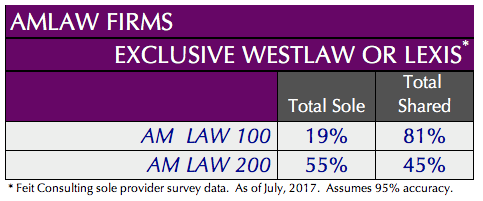
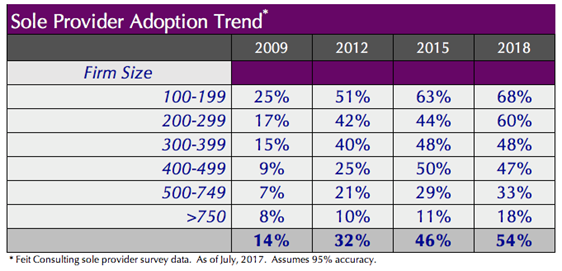
The historic growth of the sole provider trend amongst firms in the Am Law 200/100 has been growing rapidly from the early 2000s to today. As a greater number firms continue to move in this direction, the validity and viability of this option has been reinforced.
For U.S. Law Firm email addresses only:
Curious for more? Email Feit Consulting here to see how the sole provider trend breaks down by Westlaw and Lexis.
